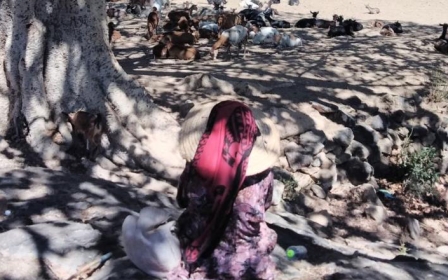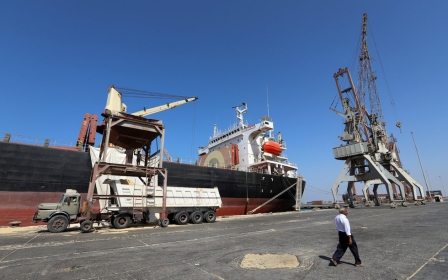Yemen sides agree deal on first phase of pullback from Hodeidah, UN says

Yemen's government and Houthi rebels have agreed on the first phase of a pullback of forces from the key city of Hodeidah, in a deal the United Nations described on Sunday as important progress.
The redeployment from Hodeidah is a critical part of a ceasefire deal reached in December in Sweden that calls on the government and Houthis to move forces away from ports and parts of city, AFP said.
The fragile truce deal marks the first step towards ending a devastating war that has pushed Yemen to the brink of famine. The truce has largely been respected but skirmishes continue between the Houthi movement and their foes in a Saudi-led coalition fighting to restore the internationally recognised government, Reuters said.
Following two days of talks in Hodeidah city, the government and Houthis finalised the deal on the first phase of the pullback and also agreed in principle on the second phase, a UN statement said.
Stay informed with MEE's newsletters
Sign up to get the latest alerts, insights and analysis, starting with Turkey Unpacked
The talks were led by Danish General Michael Lollesgaard as chair of a redeployment coordination committee (RCC) that includes the government and the Houthis.
"After lengthy but constructive discussions facilitated by the RCC chair, the parties reached an agreement on Phase 1 of the mutual redeployment of forces," said the UN statement.
The sides made "important progress on planning for the redeployment of forces", but no date was given to begin the demilitarisation.
"The parties also agreed, in principle, on Phase 2 of the mutual redeployment, pending additional consultations within their respective leadership."
The first phase provides for a pullback from the ports of Hodeidah, Saleef, Ras Issa and from parts of the city where there are humanitarian facilities.
Under the Stockholm agreement, the pullback was supposed to have taken place two weeks after the ceasefire went into force on 18 December, but that deadline was missed.
The United Nations is hoping that a de-escalation in Hodeidah will allow desperately needed food and medical aid to reach millions in need in Yemen.
The Red Sea port is the entry point for the bulk of imported goods and relief aid to Yemen, which the United Nations has described as the world's worst humanitarian crisis.
A new round is planned within a week to finalise details on the second phase of redeployment, the UN statement said.
The ceasefire and a Hodeidah pullback agreed in Stockholm have been hailed as a breakthrough towards ending Yemen's nearly four-year war.
Yemen's rebels have been mired in the war with government forces backed since 2015 by a Saudi-led coalition.
The talks on Saturday and Sunday were the fourth meeting held to try to agree on the modalities of the pullback of forces since the ceasefire came into force.
The United Nations is also brokering a separate set of talks on an exchange of thousands of prisoners that is seen as a key confidence-building measure in the peace process.
UN envoy Martin Griffiths, who brokered the Stockholm deal, is to report to the Security Council on Tuesday.
About 10,000 people have been killed in the war, according to figures from the World Health Organisation, but rights groups say the death toll is much higher.
Middle East Eye delivers independent and unrivalled coverage and analysis of the Middle East, North Africa and beyond. To learn more about republishing this content and the associated fees, please fill out this form. More about MEE can be found here.





